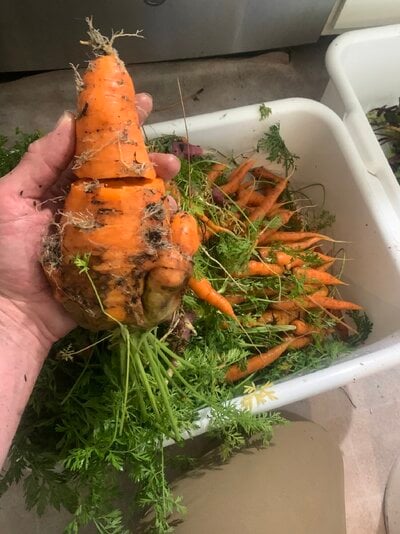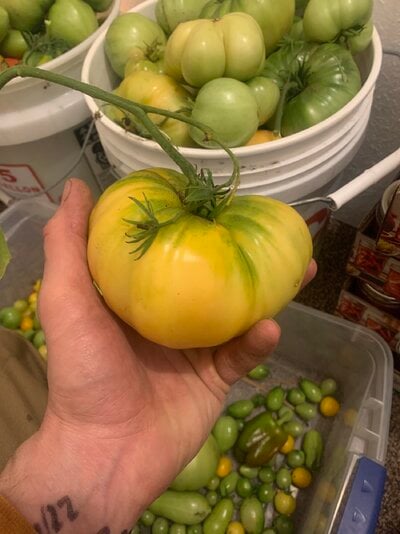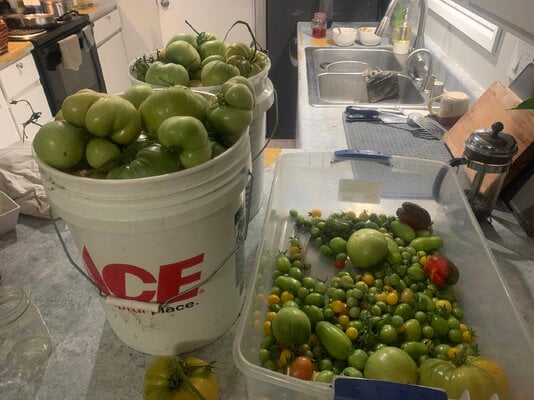Hi Everyone.
I clean out my coop twice a year and have accumulated a lot of soiled bedding. It’s mostly straw. (Flock fresh, some hemp bedding, etc. looking to buy from a local ranch soon to save $$$.)
Anyways, given that it’s already a mix of green/brown, is there a rule of thumb for this stuff? I generally just mix in the manure from under the roost into the rest of the bedding instead of using a poop board. So, by the time I clean it out there’s a bunch of manure in the bedding.
Any guidance? I am looking to do hot compost. Also, any info you all can give me about how it’s Ok to let chickens into the garden in the fall to cleanup weeds/bugs? My partner doesn’t like the idea of there being ‘raw’ chicken poop in the garden.
Thanks and Happy Fall. (Green tomato year!)
I clean out my coop twice a year and have accumulated a lot of soiled bedding. It’s mostly straw. (Flock fresh, some hemp bedding, etc. looking to buy from a local ranch soon to save $$$.)
Anyways, given that it’s already a mix of green/brown, is there a rule of thumb for this stuff? I generally just mix in the manure from under the roost into the rest of the bedding instead of using a poop board. So, by the time I clean it out there’s a bunch of manure in the bedding.
Any guidance? I am looking to do hot compost. Also, any info you all can give me about how it’s Ok to let chickens into the garden in the fall to cleanup weeds/bugs? My partner doesn’t like the idea of there being ‘raw’ chicken poop in the garden.
Thanks and Happy Fall. (Green tomato year!)







 Good article on hot composting. I enjoyed reading it even though I am firmly in the cold composting camp. One thing I read is that cold composting will have larger bits and pieces not quite broken down yet as compost. That is probably true, but I sift all my cold compost with my cement mixer compost sifter, using different sized screens depending on how fine I want the sifted compost to be. The rejected, unfinished, compost gets tossed back into the chicken run for some more time to compost.
Good article on hot composting. I enjoyed reading it even though I am firmly in the cold composting camp. One thing I read is that cold composting will have larger bits and pieces not quite broken down yet as compost. That is probably true, but I sift all my cold compost with my cement mixer compost sifter, using different sized screens depending on how fine I want the sifted compost to be. The rejected, unfinished, compost gets tossed back into the chicken run for some more time to compost.

 When I was younger, I tried to do some hot composting. I was never too successful and certainly never had finished compost in that magic 18-day period. The composting chickens just do a much better job for me, and I don't have to work hard at all turning the compost piles anymore.
When I was younger, I tried to do some hot composting. I was never too successful and certainly never had finished compost in that magic 18-day period. The composting chickens just do a much better job for me, and I don't have to work hard at all turning the compost piles anymore.